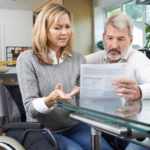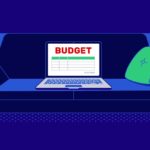Did you know that it is possible to pay off debt even if you are unemployed? Yep, you heard right. All it takes is the right strategy, financial discipline, and a bit of perseverance.
If you are between jobs, you are probably more focused on putting food on the table and gas in the car. But ignoring your debt altogether is never the answer since it will accumulate and put you deeper in the red.
Here is how you can keep paying your credit obligations even if you aren’t employed. You do need to make certain sacrifices every now and then, but they will be worth it in the end.
America’s debt is growing by leaps and bounds
It seems that debt will forever be a part of our society. According to an article published on Scripps News, the American household debt increased to $17 trillion in the first quarter of 2023.
Most of the balances have gone up for various credit types. For a mortgage, the increase was $324 billion for the first quarter of 2023. In January 2019, new car payments over $1,000/month made up roughly 5% of sales. In March 2023, four-figure monthly payments ballooned to 17% of the new car market.
Americans’ total credit card balance was $986 billion in the first quarter of 2023, which is the highest since the Fed began tracking this rate in 1999. And the amount of student loans continues to skyrocket as it passes the $1.7 trillion mark.
With all this debt hanging over people’s heads, anyone could be one step away from financial disaster. That’s why being unemployed doesn’t mean that paying your debt is no longer a priority. It very much is!
If you are unemployed and living off your credit cards, this could be a recipe for disaster. Especially since if you are struggling to pay the minimum, you don’t have the option of deferring payments. Credit card companies will continue to collect even if you provide proof that you are unemployed and struggling financially. Take heed, there are still ways to keep your spending under control.
Prioritize your debts
Payments that could leave you homeless, without essential services like electricity, or where the creditor has the power to sue you should take top priority.
For example, if you don’t pay your auto loan, which is a secured debt, you could lose your collateral. In this case, it would be your car! That is why it’s important to consider the big picture before creating a payment plan.
When deciding which debt to take on first, you can choose from one of these two approaches:
Pay the highest interest first plan
This strategy can help you reduce your total cost over time.
Obviously, debts with a higher interest rate will generally cost you more money in the long run than those with lower APRs. If you are paying 20% on a credit card, that interest will accumulate quickly every month. But once the debt is resolved, you will no longer need to deal with paying that outrageous rate.
Next, use those monthly funds to begin whittling down the balance with the second-highest interest rate. Continue doing this until you have taken care of all the debts on your list.
If you decide to follow this plan, it is important that you keep paying at least the minimum on all of your balances to avoid late fees, penalties, and sometimes even collections.
The debt snowball plan
If you choose to use the snowball plan, you will continue making all minimum monthly payments to avoid late fees and penalties. But rather than paying the highest interest rate first, your strategy is to eliminate the smallest balance first. This, in effect, will slowly reduce the number of creditors you owe.
Once the first creditor is paid in full, you will begin applying any extra money toward the second smallest balance. This continues until all your debts are resolved. The name reflects its strategy of building momentum like a snowball rolling downhill.
Create a personal survival budget
With this strategy, you add up your average monthly income (including your unemployment benefits or a side gig). Now subtract from this number all the costs and expenses you incur in a typical month (like your rent, insurance, utilities, and monthly grocery bill). This enables you to take care of your family first, and your creditors second.
There are always places to cut expenses, and now is the time to eliminate all unnecessary bills. The point is to lower as many costs as possible so that you can use those funds to cover more pressing needs, like food and shelter.
For instance, if you have a cell phone and a landline, get rid of one for the duration of your unemployment. Stop spending $5 every day on a mocha chino and brew coffee with a dash of chocolate at home instead.
As much as it might hurt in the beginning, reduce any services you can live without like premium cable TV channels, the gym, and magazine subscriptions. And forget about dining out when you can savor a similar meal at home for half the price. Hey, there are plenty of online recipes that can help you master your cooking skills in no time.
Negotiate with your creditors
If you can’t meet any of your financial obligations, ignoring the issue won’t make it go away. You need to contact your creditors and explain your employment situation.
See if you can negotiate reduced interest charges or a deferred payment schedule. Some creditors would prefer to work with you rather than have you default on the loan. But be forewarned that there is a good chance creditors like credit card companies will tell you a firm “no”.
One company you could get somewhere with is your mortgage holder. Banks and other mortgage lenders are under more pressure than ever to agree to mortgage modification requests.
If you are dealing with an auto loan, it could become more manageable if the lender allows you to defer payments or refinance your loan.
You can also request a lower interest rate with most creditors. They might be willing to reduce your monthly payment amount by extending your loan. This can buy you time until you are working again.
If you have a federally backed student loan, the government has many payment options available during times of economic challenge, including unemployment. Contact your loan servicer for details or check with the U.S. Department of Education for guidelines.
People Also Read
Explore other sources of income
You could tap into other financial assets you may have, but this shouldn’t be your first line of defense. Withdrawing money from a retirement account like an IRA or 401(k) is not advisable.
There are penalties and tax consequences for doing so, and you are essentially taking the money you need for retirement. Don’t trade one financial issue for another—even if retirement seems far off in the future.
If worse comes to worst, you shouldn’t be ashamed if you need to temporarily collect financial aid. Who isn’t struggling to keep up with today’s inflationary environment? And part of your taxes paid for this fiscal support, so don’t feel guilty about taking money from the government.
What happens after resolving all your debts?
Let’s face it, navigating debt while you are unemployed is far from easy. So, take a second to give yourself a pat on the back. Now that you have achieved debt freedom, you can remain that way by continuing to practice healthier spending habits.
Your financial journey can lead you to wherever you want after you experience the thrill and power of resolving your debt:
- Freedom. When you no longer have credit obligations or crippling debt, you have the freedom to pursue what you want—within limits. Just be sure not to get carried away and right back into debt. You will also feel less mental, physical and financial stress, and who doesn’t want that?
- Empowerment. After going through all that hard work to resolve your debt, you might feel like you can overcome just about anything. This newfound confidence can take you to new experiences and make you less fearful when taking calculated, but necessary, risks.
- Opportunities. Without debt, a brand-new world of opportunity awaits. You might decide that now is the time to switch careers, purchase your first home or create an emergency fund to help keep you out of debt when the unexpected occurs.
Eliminating credit completely is not really necessary and can actually work against you. A sound strategy is to only use your credit card when you know you can pay the balance in full when the bill comes due. This will allow you to build your credit history without putting your financial situation in danger.
There are also instances when debt is a necessary tool that allows you to improve your financial situation. According to an article published on BBC.com, debt is sometimes used to help achieve a goal. This includes receiving an education, owning your own home or even starting your own business.
If you can’t afford it, don’t buy it
If you know how to manage your finances correctly, you do not have to worry about it taking over your life. Remember to only take on as much debt as you can afford to pay back. Otherwise, you might end up living from paycheck to paycheck, which is a brutal cycle you should always try to avoid.
If you do find yourself in this position, you need to hit the brakes on your current lifestyle. You can still live the life you want as long as you track your spending and reign in anything that might be putting your financial situation in jeopardy.
Hopefully, you will find a new job with a higher salary that provides more wiggle room for your spending. Just don’t overdo it! The first thing you should do with your extra earnings is create an emergency fund between $500-$1,000.
Becoming unemployed doesn’t mean your debt goes on pause. But if you take the right actions, you can still remain financially on track. You can even turn this negative situation into a positive by using the time to reassess what you want out of your career and your life.




